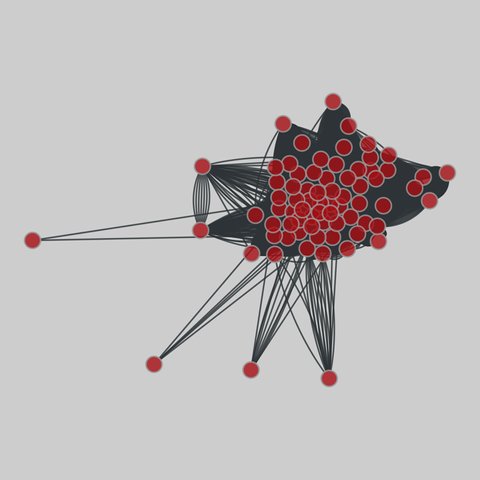2025-07-12 04:00:03
sp_colocation: Social co-locations (2018)
Network of colocations between peoople, based on the information on which RFID readers received information from the RFID tags. Namely, we define two individuals to be in co-presence if the same exact set of readers have received signals from both individuals during a 20s time window.
This network has 81 nodes and 150126 edges.
Tags: Social, Offline, Unweighted, Weighted, Temporal, Metadata
2025-06-12 16:46:37
Things I enjoy: adding a new ring address across the cluster. Since I added the migration network post-cluster creation it couldn't being used by `corosync` in case something tragic happened. Also, it meant that if you added a new node to the cluster it wouldn't verify that the migration network was online on the new node when it brought it into the cluster. However, solved that pretty fast by just adding it as a `ringX` entry (in this case `ring3`) to all the nodes and enabled it…
2025-06-12 08:43:51
Policy-Based Trajectory Clustering in Offline Reinforcement Learning
Hao Hu, Xinqi Wang, Simon Shaolei Du
https://arxiv.org/abs/2506.09202 https://
2025-06-12 16:26:56
Cancer cells use cholesterol armor to survive heat shock treatment, study discovers
https://phys.org/news/2025-06-cancer-cells-cholesterol-armor-survive.html#google_vignette
2025-07-12 19:03:27
TIL linking likely does not make a program a derivative of a library in the EU, thus making the GPL, LGPL and MPL effectivelly identical here.
https://interoperable-europe.ec.europa.eu/collection/eupl/news/copyleft-or-reciprocal
2025-06-13 07:36:30
Cybernetic Marionette: Channeling Collective Agency Through a Wearable Robot in a Live Dancer-Robot Duet
Anup Sathya, Jiasheng Li, Zeyu Yan, Adriane Fang, Bill Kules, Jonathan David Martin, Huaishu Peng
https://arxiv.org/abs/2506.10079
2025-06-13 14:22:40
Headlines like this really make me want to just give up (by which I mean move to one of those tiny offshore islands in the North Atlantic)
https://theconversation.com/ai-tools-collect-and-store-da…
2025-06-13 07:28:10
Collective Bargaining in the Information Economy Can Address AI-Driven Power Concentration
Nicholas Vincent, Matthew Prewitt, Hanlin Li
https://arxiv.org/abs/2506.10272
2025-06-11 20:24:27
Very excited about this! Code to access GRIN will help lots of Google Books partners, and the example might open other doors, as well as the obvious benefits of access to data!
'Institutional Books 1.0: A 242B token dataset from Harvard Library's collections, refined for accuracy and usability' https://arxiv.org/abs/2506…
2025-05-13 10:25:13
This https://arxiv.org/abs/2504.20349 has been replaced.
initial toot: https://mastoxiv.page/@arXiv_qfi…






